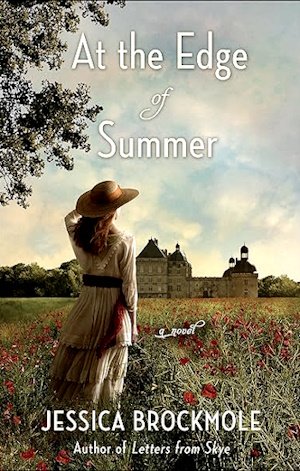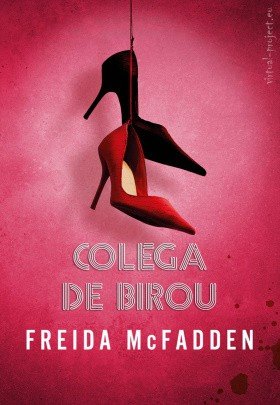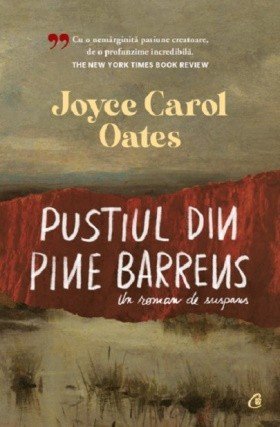His only reply was a deep, ragged inhale.
Mrs. Ladd always said I was too familiar, that I should keep my fingers on the sketchbook. That these soldiers, voluntarily cut off from their families for years, weren’t used to touch. But I wasn’t sure how one could remain true and accurate without feeling the bones of what they were drawing.
“I didn’t mean to startle you.”
He breathed a sigh, then said, “You didn’t. At least not in the way you think.”
Confused, I looked back down to my drawing.
“Please,” he whispered, “what is your name?” He’d spoken in English.
“Ross. Clare Ross.”
He leaned back and swallowed. “Clare Ross,” he repeated. Then straightened. “Mademoiselle Ross, you feel your art.”
“I had an excellent teacher,” I said softly.
Something tensed in his face. “And where is your teacher now?”
“I’d give everything to find out.”
“Please excuse me.” He stood abruptly.
As he walked away, my pencil hurried, filling in adjustments, adding what I’d felt beneath his skin. Wondering if the answer would appear on my paper.
When it did, I froze. Those eyes, they were always so serious. That mouth used to smile when I least expected it. And that little scar on the top of his right cheek, the souvenir of a long-ago tennis match. I traced the lines on the page, smudging them beneath my fingertips until it was as hazy as a dream. These days, that’s all he felt like.
“Mrs. Ladd,” I said, eyes still on the page. “The soldier I was drawing, did he have an appointment? Did he leave a name?”
As she wiped her hands on her smock and went to the book she kept in her desk, I flipped over the sketch that the soldier had left behind. I no longer needed her reply.
On the page he’d left behind was my face. Not the face of the woman I saw each morning in the mirror, but of a fifteen-year-old girl, lonely, scared, leaning out of a tower window wondering if she’d ever be strong enough to fly away.
I didn’t need Mrs. Ladd to tell me his name, because it was on my tongue, tasting like oranges and rain and the scent of roses. Years of memories, tasting like summertime.
Luc.

There was a time I thought about Clare every morning. There was a time I mentally catalogued everything beautiful so that I could write to her about it at the end of the day. But as the years passed, it faded. She never wrote back, and soon her tiptoes through my dreams were only occasional. Those mornings I’d wake up not remembering a thing, but blushing. She’d been there.
And then Chaffre died and I dragged myself, bleeding, from that cellar. I never dreamt about Clare after that day. All I had now were nightmares.
But she was here, in Paris. Grown up, but with those same clear eyes, that corkscrew of hair on her forehead, those insistent, gentle fingers. How could I not recognize her?
But Clare didn’t look like Clare. Not anymore. It wasn’t so surprising that I didn’t recognize her. She wore a dress as bright as a Moroccan rug. Apart from that errant curl, the rest of her red-brown hair was tucked tight beneath a scarf. She spoke French, confidently, with a trace of an accent running through her words. But the biggest difference, she stood so still, so calm, waiting for me to step into the studio. Not the Clare I remembered, always coiled as tight as a spring. That Clare didn’t know the meaning of the word “patience.”
Back in my apartment, in the crooked little garret high above Paris, I paced. There had been days I couldn’t even pull myself from bed. Days where it was an effort to prop myself up by the window, button up my shirt, go to buy bread. And here I was pacing.
Something had woken in me the day I’d received a letter from Mabel. She was still at Royaumont but had heard of a new studio in Paris, making masks for French soldiers. She’d write to Madame Anna Ladd to set an appointment for me, if I’d like. For all of these months I was drowning, it felt like a rope. So, with the appointment set, I took my uniform from under the bed, brushed out the wrinkles, and made coffee. Though each step to the Rue Notre-Dame-des-Champs that morning was an effort, I went. And, in that bright, busy little studio, I found Clare.
She’d been right across from me, smelling like sunshine and summer. She’d looked at me like I was a man, not a monster or an object of pity. I kicked the wall, setting up a volley of knocking from the room next door. It didn’t matter, it shouldn’t matter, that I found Clare again. That the moment she touched my face, my heart beat and I felt nineteen again.
Across the small apartment room in four steps, turn at the desk and back towards the window. The floor creaked and sent up dust with each step. Demetrius and Lysander watched from their gilt cage, uncharacteristically silent.
I couldn’t go back to being nineteen. The boy who played tennis, sketched in cafés, studied until he couldn’t see straight, that boy who thought he could do it all, he was long gone. Sometime, in the middle of a war, I’d grown up. As I told Maman the day she found me in Paris, I needed to find out who I was.
I crumpled onto my narrow bed and pressed my face into the pillow. My ruined face, that she’d seen, that she’d touched. I flinched at the memory. The last time those fingers had traced my face, they felt boyish cheeks, unkissed lips, eyes waiting for wonder. Now those eyes had seen too much. This face—I buried it further in the pillow, hid it, erased it—had felt too much.
I fell asleep like that, half-formed sobs lost in the cotton and horsehair, as Paris quieted. For the first time in years I didn’t dream in nightmares. I didn’t dream at all. I woke in the sickly gray of dawn, my blanket tangled around my feet. February, but I was bathed in sweat.
My early bedtime, my dreamless sleep, the way the dawn had snuck up on me, I woke renewed and restless. My window was edged in frost. It was cold and overcast, but there was a strange hopefulness around the edges of the day. I stood for a moment at the window, my little finger trailing through the frost.
Part of me wished I hadn’t left the studio when I did. That I’d sat and listened to her talk about Paris with that satisfied little glow. I wanted to ask her about her art, her job, her grandfather, her life. I wanted to catch the eight years I’d missed.
But that other, the part that refused mirrors, refused friendship, refused anything that used to make me happy, that part hesitated. I was older and warier, but so was Clare. I’d watched through her words as she changed over the years. I watched her grow strong and self-sure, not one to forgive. Knowing what I knew about that one night in Paris, the night when Stefan Bauer took her off the train, I understood why. I drew my fingernail down the frosted glass with a scratch.
But, in the window’s reflection, I swore my eyes were a little less dead today. The only thing that had changed, the only thing new, was her.
The parrots were rattling the sides of their cage. I’d forgotten to cover them last night. “I shouldn’t go back,” I said to them, leaning close. “I won’t.” Lysander turned his head and fixed me with a round eye, but Demetrius cackled. I fed them and moved the cage closer to the sunlight coming through the window.
I peeled off my hated uniform, damp and again wrinkled. I splashed my face with ice-cold water from my basin and bent to pour a trickle through my hair. Dripping, I shaved by touch. The last time the concierge had brought me a mirror, I’d hurled it down the incinerator with the rest.
The concierge, she was my mirror. Madame Girard, as round as a boule and just as crusty. She’d poke her head out from her loge on the ground floor when I left the building, always ready with a suspicious look, as though disreputable characters traipsed in and out of her building every day. No, I was the only one. The way her gaze flit away, the way those hard eyes grew harder. I frightened her.
Today, though, she leaned on her doorway a moment longer than usual. “Monsieur.” The word she always managed to infuse with sarcasm. “You’re going out, for a second day in a row?”
Despite herself, the sentence was tinged with surprise. Maybe curiosity.

























